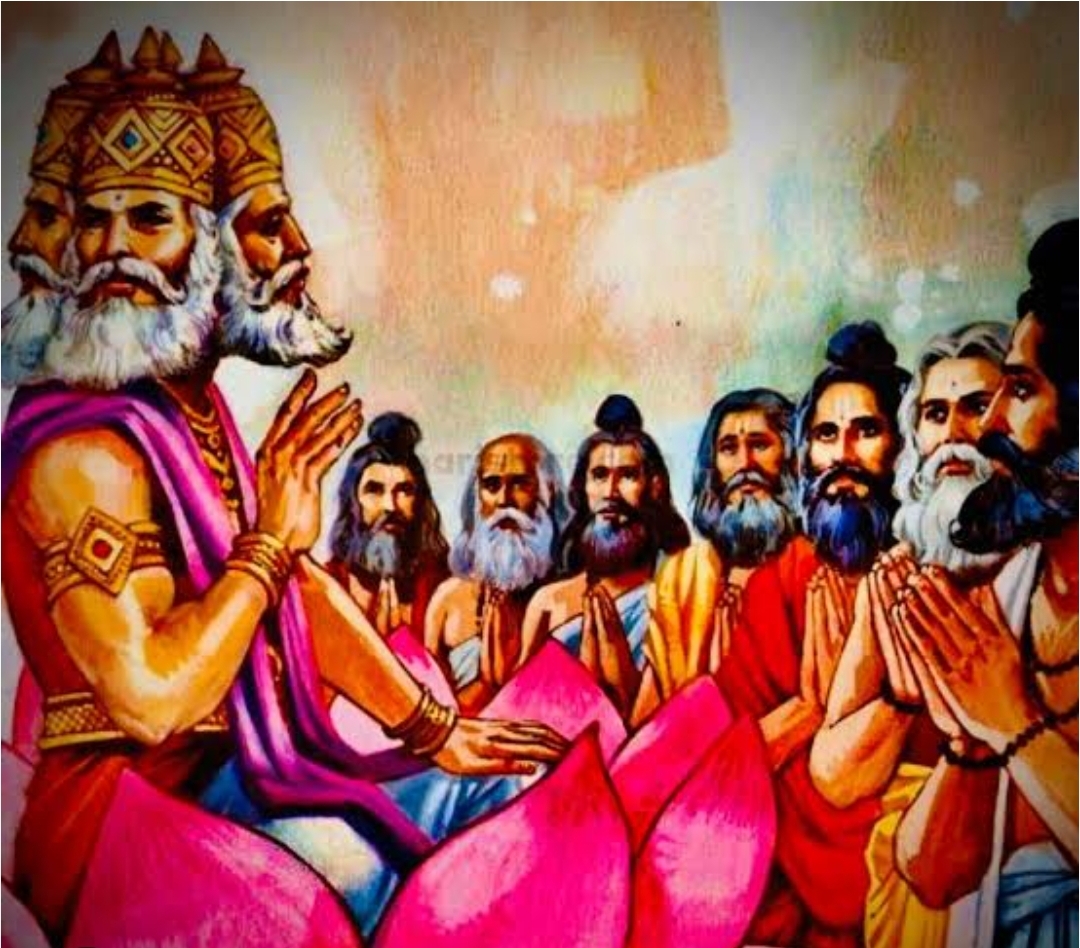SAPTARISHI THE 7 GREAT SAGES OF COSMIC WISDOM
The Saptarishi, often referred to as the Seven Great Sages or Seven Seers, hold a special and revered place in Hindu tradition. These ancient sages are considered the mind-born sons of Lord Brahma, the creator of the universe. They play significant roles in the cosmic order, and their names are frequently mentioned in various Hindu texts and scriptures.
Let’s delve deeper into the individual characteristics and contributions of each of the Saptarishi (Seven Great Sages):
1. Bhrigu:
– Attributes: Rishi Bhrigu is also known for his impartiality, which is a key trait in astrology. He is often portrayed as a sage with profound intellectual and analytical abilities.Bhrigu’s impartiality was famously tested when he conducted an experiment to determine which of the Holy Trinity—Brahma (the creator), Vishnu (the preserver), or Shiva (the destroyer)—was the most superior. In the process, he offended Lord Shiva but ultimately acknowledged the divinity of all three.
–Contributions: Bhrigu Samhita, attributed to him, is a comprehensive astrological text that offers insights into an individual’s past, present, and future based on their horoscope. His system of astrology has played a significant role in Indian astrological traditions.
2. Marichi:
– Attributes: Marichi is associated with the power of mind and intellect. He symbolizes the importance of mental clarity and control. Marichi is recognized for his role in propagating knowledge about creation and cosmic order. His contributions involve teachings related to the cosmic mind and the intricacies of the universe’s origin.
– Contributions: While Marichi’s contributions are often tied to philosophical ideas related to the mind and creation, specific texts or hymns attributed to him are less common.
3. Atri:
– Attributes: Rishi Atri is celebrated for his unwavering devotion and ascetic practices. He is often depicted as a sage who mastered the art of penance.Rishi Atri is celebrated for his devotion and penance. His dedicated asceticism pleased Lord Shiva, who blessed Atri and his wife Anasuya with the birth of a divine child, Dattatreya.
– Contributions: Atri is associated with the Atharva Veda and is believed to have composed hymns that are included in this Veda. His devotion to Lord Shiva is also well-known.
4. Pulastya:
– Attributes: Pulastya is renowned for his knowledge of Dharma and ethical principles. He is often portrayed as a sage with a deep sense of righteousness. He authored Dharmashastras and is associated with ethical principles. His teachings emphasize the importance of righteous conduct.
– Contributions: Pulastya is credited with composing several Dharmashastras, which are texts that provide guidance on moral and ethical conduct.
5. Pulaha:
– Attributes: Pulaha’s story emphasizes his profound devotion and meditation. His ascetic practices led to spiritual realization, and he is often regarded as a symbol of purity and inner contemplation.
– Contributions: While his contributions in terms of specific texts are not as widely documented, Pulaha’s devotion and asceticism serve as an example of intense spiritual commitment.
6. Kratu:
– Attributes: Kratu’s character is often associated with rituals and sacrifices. He symbolizes the importance of performing sacred ceremonies with devotion and precision.
– Contributions: His primary role is in the performance of rituals and yagnas, which play a crucial part in Hindu religious practices.
7. Vasishtha:
– Attributes: Rishi Vasishtha is known for his wisdom, tranquility, and virtuous character. He embodies the ideal of a spiritual teacher and guide.
– Contributions: Vasishtha authored hymns in the Rigveda and played a pivotal role as the guru of Lord Rama in the Ramayana. His teachings emphasize the values of truth, non-violence, and inner harmony.
The Saptarishi are believed to guide the cosmic order and contribute to the spiritual and philosophical understanding of the universe. Their collective wisdom and teachings have had a profound influence on Hindu philosophy, ethics, and spirituality. These sages are often cited as examples of the highest levels of spiritual realization and self-mastery. Their stories and contributions continue to be celebrated and studied in Hindu culture and religious traditions.


